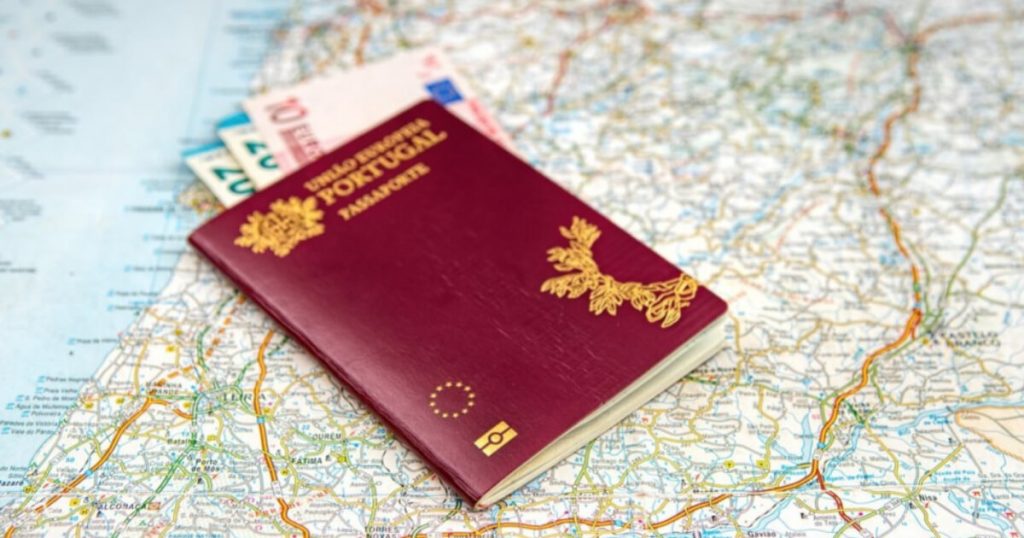Embarking on a new journey in Portugal can be an exhilarating experience, but navigating the financial landscape as a non-resident can seem daunting. However, the good news is that Portugal stands out as one of the most accessible countries in the European Union when opening a bank account, even for those without permanent residency. Whether you’re planning to retire, invest, or manage your finances while exploring the wonders of this captivating nation, this comprehensive guide will equip you with the knowledge and steps to establish your Portuguese banking presence seamlessly.
5 Reasons to Open a Portuguese Bank Account as a Non-Resident
Ease of Account Opening
While many countries, including financial hubs like Singapore and Hong Kong, present significant hurdles for non-residents looking to open bank accounts, Portugal stands out as a refreshing exception. The process is remarkably straightforward, with most banks welcoming applications from individuals without permanent residency.
SEPA and Euro Denomination
Portugal’s membership in the Single Euro Payments Area (SEPA) and its use of the euro, one of the world’s strongest currencies, offer distinct advantages. SEPA ensures seamless and cost-effective fund transfers across the Eurozone, while the euro’s stability and widespread acceptance make it an attractive choice for managing your finances.
Low Maintenance and Transaction Costs
Many Portuguese banks offer bank accounts and debit cards with minimal or no monthly fees, making them an appealing option for non-residents. Moreover, standard transactions within the Eurozone, such as ATM withdrawals and SEPA transfers, are often free of charge or involve negligible fees.
Multibanco Access
The Multibanco network, a unique interbank system in Portugal, provides an extensive network of over 12,000 ATMs. This allows you to withdraw cash, pay bills, transfer funds, and even purchase tickets without incurring additional fees, making it a valuable asset for non-residents.
Investment and Residency Opportunities
If you’re considering investing in Portugal through the popular Golden Visa program or other real estate ventures, having a local bank account can significantly facilitate the process. It can be a hub for your financial activities and help streamline your investment journey.
Obtaining a NIF: The First Step for Opening a Bank Account in Portugal Non-Resident
Before opening a bank account in Portugal, you must acquire a NIF or Número de Identificação Fiscal, the Portuguese tax identification number. This straightforward process can be handled by an accountant or a lawyer acting on your behalf, ensuring a smooth and efficient start to your banking experience.

Required Documents for Opening a Bank Account
While some Portuguese banks allow online account opening, most require visiting a local branch in person. Regardless of the method, the necessary documents are generally the same:
- Proof of Identification (e.g., a valid passport)
- Proof of Address (e.g., a recent utility bill or letter with your name and address)
- Portuguese NIF Number
- Proof of Income or Employment (e.g., a recent payslip or employment contract)
- Portuguese Phone Number for SMS Activation
- An Initial Deposit (typically between €250-€300 in cash)
Choosing the Right Bank in Portugal
Portugal boasts a diverse banking landscape, offering various options to suit your needs. The choice can be overwhelming, from private national banks and international institutions to public retail banks and regional cooperatives. To help you navigate this landscape, we’ve compiled a list of some of the top banks in Portugal, both domestic and international, that cater to non-resident clients.
Domestic Portuguese Banks
Caixa Geral de Depósitos
As Portugal’s most extensive public retail bank, Caixa Geral de Depósitos (CGD) offers a comprehensive suite of banking services, including accounts, loans, and investment products. With a strong presence throughout the country, CGD is a reliable choice for non-residents.
Millennium BCP
Millennium BCP is the largest private bank in Portugal. It provides a wide range of personal and corporate banking solutions. Its user-friendly online platform and English-language support make it an attractive option for non-resident clients.
Novo Banco
Novo Banco, formerly Banco Espírito Santo, is another prominent player in Portuguese banking. While its website is primarily in Portuguese, the bank’s staff is generally proficient in English and can assist non-resident customers.
Banco BPI
Banco BPI, a subsidiary of the Spanish banking group CaixaBank, offers a diverse range of products and services tailored to the needs of non-resident clients, including accounts, loans, and investment opportunities.
Opening Your Bank Account in Portugal as a Non-resident
Once you’ve selected the bank that best suits your needs, opening your account can begin. Depending on the institution, you may be able to complete the entire process online or will need to visit a local branch in person. Here’s a step-by-step guide to help you navigate the account opening procedure:
- Gather the required documents: Ensure you have all the necessary documents, such as proof of identification, address, income, and Portuguese NIF number.
- Choose the account type: Choose the account that best suits your financial needs, whether it’s a checking account, savings account, or a specialized offering for non-residents.
- Complete the application: If opening the account online, follow the bank’s instructions to complete the digital application form. For in-person visits, be prepared to complete the necessary paperwork at the branch.
- Provide the required documentation: Present the documents you’ve gathered to the bank representatives by uploading them digitally or submitting them in person.
- Activate your account: Depending on the bank’s procedures, you may need to complete additional steps, such as a video call or in-person visit, to activate your new account.
- Receive your debit card: Once your account is opened, the bank will typically issue a debit card that you can use for your day-to-day transactions.
Fees and Costs
Knowing the fees and costs associated with your account and transactions is essential when banking in Portugal. While the country is known for its relatively competitive banking landscape, it’s still crucial to understand the charges you may incur.
Account Maintenance Fees
Many Portuguese banks charge a monthly or annual fee for maintaining your bank account, with the average ranging from €5 to €7 per month, or around €60 per year.
Transaction Fees
Standard transactions within the Eurozone, such as ATM withdrawals, SEPA transfers, and debit card usage, are often free or carry negligible fees. However, international money transfers may incur slightly higher charges.
Credit Card and Overdraft Fees
The fees associated with credit cards and overdraft facilities can vary depending on the bank and your specific product. Reviewing the terms and conditions carefully to understand the applicable charges is essential.
Loan and Mortgage Fees
When applying for loans or mortgages, you may encounter fees related to the application process, appraisals, and ongoing servicing. These costs are typically calculated based on the Annual Percentage Rate (APR).
To minimize your banking costs, it’s advisable to research and compare the fee structures of different banks and explore options like online and digital banks, which often offer more competitive pricing.
Maintaining and Closing Your Account as a non-resident in 2024
You may need to change or close your account throughout your banking journey in Portugal. Here’s what you need to know about these processes:
Changing Your Account Information
If you need to update your contact details, such as your address or phone number, you can typically do so either online or by visiting a branch in person. Some banks may require you to submit specific documentation to verify the changes.
Closing Your Bank Account
When you close your Portuguese bank account, you must follow the bank’s procedures, which usually involve submitting a written request or visiting a branch. The bank may require you to settle any outstanding balances or fees before closing the account.
Handling Lost or Stolen Cards
If your debit or credit card is lost or stolen, you must immediately contact your Portuguese bank or card provider to report the incident and request a replacement. You may also need to report the theft to the local police.
Taxes and Regulations Opening a Bank Account in Portugal Non-Resident
As a non-resident in Portugal, you must familiarize yourself with the country’s tax system and regulatory landscape. This knowledge will help you ensure compliance and avoid any potential issues.
Tax Residency and Obligations
In Portugal, you are considered a tax resident if you reside there for at least 183 days per year. As a tax resident, you’ll be subject to income tax, corporate tax, value-added tax (VAT), and social security contributions, among other levies.
Reporting and Compliance
Depending on your financial activities and investments in Portugal, you may be required to report certain transactions or holdings to the relevant authorities, such as the Banco de Portugal (the central bank) or the Portuguese and Customs Authority (Autoridade Tributária e Aduaneira).
Regulatory Oversight
The Portuguese banking sector is overseen by the Banco de Portugal, which ensures the stability and integrity of the financial system. As a client, you can expect your bank to adhere to strict regulatory guidelines and consumer protection measures.
Alternatives for Non-Residents
While opening a traditional bank account in Portugal for non-residents is straightforward, there are also alternative options to consider, particularly for those who may not be able to visit the country in person or prefer a more digital-focused approach.
Remote Account Opening
Portuguese banks, such as Banco Atlântico Europa, can open an account remotely without visiting a branch. This can be particularly useful for non-residents who cannot travel to Portugal.
Digital Banking Solutions
Services like N26, Revolut, and Transferwise provide digital banking solutions for non-residents and frequent travellers. These platforms often offer multi-currency accounts, international money transfers, and other features tailored to the modern, mobile-centric lifestyle.
The information in this article on “opening a bank account in Portugal non-resident” is for general informational purposes only and is not intended to constitute legal advice. While every effort has been made to ensure the accuracy of the content, laws and legal procedures can change, and the specifics of each case can vary widely. Therefore, readers are advised to consult a qualified professional or attorney in Portugal for advice tailored to their circumstances before taking action. This article does not create an attorney-client relationship between the reader, the authors, or the publishers. The authors and publishers are not liable for any actions taken or not taken based on the content of this article.
The founding of Madeira Corporate Services dates back to 1996. MCS started as a corporate service provider in the Madeira International Business Center and rapidly became a leading management company… Read more





